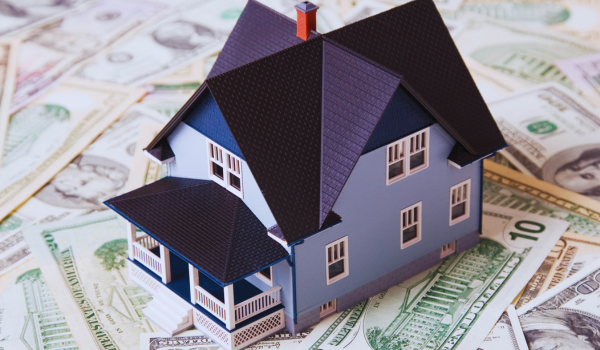Are you considering selling your house in its current condition without making any repairs or updates? While this may seem convenient and hassle-free, weighing the potential costs and consequences carefully is essential. Selling a house as is can have significant financial implications, and understanding the potential losses involved is crucial in making an informed decision. In this article, we will explore the various factors that can contribute to the overall cost of selling a house as is and provide you with the necessary information to help you determine if it’s the right choice for you.

From hidden fees to lower sale prices, there are many elements to consider when selling a house as is. By the end of this article, you will better understand how much you may lose by selling your house as is and the potential impact it can have on your finances. So, before you make any final decisions, let’s delve into the details of selling a house as is and the potential costs involved.
Know The Market Value First
Before making any decisions about selling your house “as is,” it is crucial to have a clear understanding of the market value of your property. This knowledge will give you a realistic expectation of how much you can lose or gain in the transaction. Market value refers to the price a property would sell in a competitive and open market. Factors such as location, condition, size, and recent sales of comparable properties in your area all play a role in determining the market value.

By obtaining a professional appraisal or consulting with a real estate agent, you can gain valuable insights into the current market conditions and accurately assess the potential financial implications of selling your house “as is.” This information will empower you to make informed decisions and negotiate effectively throughout selling.
Factor In Repair Costs, Too
When considering selling your house “as is,” it’s crucial to factor in the potential repair costs. While selling a home in its current condition may save you time and effort, it’s essential to recognize that prospective buyers will consider any necessary repairs or upgrades when making an offer. Neglecting to address these issues upfront could result in lower offers or extended time on the market. Additionally, you may need to consider the impact of repair costs on your overall financial outcome.
Investing in necessary repairs and updates can often increase the market value of your property and potentially result in a higher selling price. On the other hand, if the cost of repairs outweighs the potential increase in value, you may need to carefully weigh your options to determine the best course of action. By considering repair costs alongside market value and other factors, you can make an informed decision about selling your house “as is” and maximize your potential profit.
Be Prepared For Lower Offers
When selling a house “as is,” it’s essential to be prepared for potential lower buyer offers. This is because buyers know they must invest time and money into addressing any necessary repairs or renovations. While selling as is can save you on upfront costs, it’s crucial to understand that buyers will consider these expenses when making their offer.
Setting a realistic asking price that reflects the property’s condition while aligning with market value is recommended. Being open to negotiations and considering the current market conditions can also help navigate lower offers and ultimately achieve a satisfactory outcome. By being prepared for lower offers and approaching the selling process with a realistic mindset, you can ensure a smoother and more prosperous sale of your house “as is.”
Consider The Time And Effort Invested
Before selling your house “as is,” you must consider the time and effort invested into the property. Think about your years of maintaining and caring for your home. While selling as is may seem quick and easy, weighing the potential financial loss against the time and effort you have put into the house is essential. Consider the value of your time and your emotional attachment to the property.
It may be worth investing additional time and effort to address certain repairs or renovations before putting your house on the market. This could attract more buyers and increase the overall value of your property, resulting in a higher selling price. Remember, selling a house is not just a financial transaction but also an emotional one. Take the time to evaluate your time and effort and make the best decision with your goals and priorities.
Discuss With A Realtor Beforehand
To ensure you make an informed decision about selling your house “as is,” discussing your options with a qualified realtor is highly recommended. Realtors possess the expertise and market knowledge needed to provide valuable insights into the potential financial implications of selling your home in its current condition. They can assess the local market conditions, evaluate the demand for as-is properties, and provide an estimate of the potential selling price.
Their experience can help you determine whether the potential loss from selling outweighs the benefits of making certain repairs or renovations. Additionally, a realtor can guide you through the entire selling process, including marketing strategies, negotiating offers, and navigating any legal or financial complexities that may arise. Consulting with a realtor beforehand can help you make an informed decision that maximizes your financial return while minimizing potential losses.
Conclusion
Hopefully, this post has given you a better understanding of the potential financial impact of selling a house “as is.” While it may seem like a quick and easy solution, the reality is that selling a home in its current condition can result in a significant loss of value. Consider the cost of repairs and renovations and the potential for lower offers from buyers before deciding to sell “as is.” Investing in necessary maintenance and updates can increase your chances of a higher sale price and minimize losses. Consult a trusted real estate professional for guidance and support throughout selling.
FAQ
What are the potential financial losses when selling a house compared to making necessary repairs or renovations?
When selling your house “as is,” you may potentially face more significant financial losses compared to making necessary repairs or renovations. Not addressing any issues risks attracting fewer potential buyers, resulting in a lower selling price. Additionally, buyers may negotiate for a lower price or request costly repairs during the negotiation process, further reducing your profit. On the other hand, investing in necessary repairs or renovations upfront may increase your chances of attracting more buyers and selling your house at a higher price, potentially offsetting the initial costs. Ultimately, the decision depends on weighing the potential financial losses against the investment required for repairs or renovations.
How does the condition of a house impact its market value and potential selling price when selling it as is?
When selling a house as is, the property’s condition can significantly impact its market value and potential selling price. Buyers are likely to be more hesitant and sceptical about purchasing a house that requires extensive repairs or renovations. In this situation, the second-person point of view would be: “The condition of your house plays a crucial role in determining its market value and potential selling price.
As a seller, you must understand that buyers are wary of purchasing a property that needs significant repairs or renovations. This can lower the attractiveness of your house in the market and potentially result in a lower selling price. Therefore, it’s advisable to assess the condition of your house and consider making necessary improvements before listing it for sale.”
Are there any additional costs or fees associated with selling a house as is that could result in financial losses?
When selling a house as is, additional costs or fees may result in financial losses. These costs can include repairs and renovations needed to make the home marketable and any legal or inspection fees that may arise during the selling process. Additionally, if the house does not receive competitive offers due to its condition, you may need to lower the asking price, resulting in a financial loss. It is essential to carefully consider these potential costs and consult with professionals to assess the financial implications before deciding to sell a house as is.
How does selling a house as is affect the time it takes to market, and could this impact the final selling price?
Selling your house as is can affect the time it takes and may impact the final selling price. By selling the house as is, you state that you are unwilling to make any repairs or renovations before selling. This may limit your potential buyer pool, as some want move-in-ready homes. Consequently, it may take longer to find a buyer willing to accept the house as is. Additionally, potential buyers may factor in the cost of repairs and renovations into their offer, resulting in a lower selling price. However, in some cases, selling as is can attract investors or buyers explicitly looking for fixer-upper properties, potentially resulting in a quicker sale.
Are there any potential legal or liability risks involved in selling a house as is that could result in financial losses?
When selling a house as is, you should be aware of potential legal and liability risks. By not disclosing any known defects or issues with the property, you may face legal consequences if buyers discover them later. This could lead to financial losses through lawsuits or having to compensate buyers for damages. Additionally, if any safety hazards on the property cause harm to individuals, you could be held liable for their injuries. It is essential to consult with a real estate attorney and be transparent about any known issues to minimize these risks.





